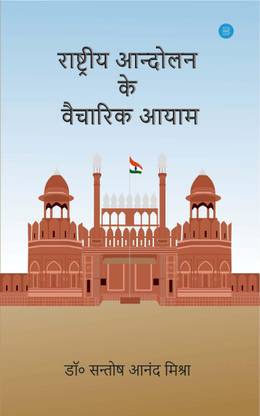Early Life and Background
Dayananda Saraswati, originally named Mool Shankar Tiwari, was born on February 12, 1824, in Tankara, Gujarat, in a Hindu Brahmin family. His father, Karshanji Lalji Trivedi, was a devout follower of Lord Shiva and raised him with traditional religious practices. From a young age, Dayananda was deeply involved in religious rituals and observed fasts, including on the occasion of Shivratri. However, an incident during a Shivratri vigil—where he saw a mouse eating the offerings placed before the idol—led him to question idol worship.
The early deaths of his sister and uncle further deepened his philosophical quest. At the age of 21, he renounced worldly life and began wandering in search of spiritual truth. Over the next 25 years, he studied various Hindu scriptures and disciplines under different scholars, ultimately becoming a disciple of Virajanand Dandeesha, who inspired him to reform Hinduism by restoring Vedic principles.
Founding of Arya Samaj
In 1875, Dayananda Saraswati established the Arya Samaj, a socio-religious reform movement aimed at reviving the teachings of the Vedas. He strongly opposed idol worship, caste-based discrimination, untouchability, and superstitious practices. Instead, he promoted monotheism, rational thinking, and the importance of education, particularly for women. His motto was "Back to the Vedas", emphasizing the infallibility of Vedic teachings.
Philosophy and Teachings
Dayananda's philosophy centered on three eternal entities:
1. The Supreme Lord (Paramatma) – An omnipresent, formless, and eternal being.
2. Individual Souls (Jivatmas) – Infinite but distinct from God, subject to karma and reincarnation.
3. Prakriti (Nature) – The material world that undergoes cycles of creation and dissolution.
Key aspects of his teachings include:
The Vedas as the only true scriptures, rejecting later texts like the Puranas and Tantras.
Opposition to idol worship and temple rituals, advocating instead for meditation and study of scriptures.
The belief in karma and reincarnation, where a soul's actions determine its future births.
Education for all, including women, as a means of social empowerment.
The abolition of caste-based discrimination, stating that a person's worth should be determined by their knowledge and character, not by birth.
Advocacy for Swaraj (self-rule), making him one of the earliest voices for Indian independence.
Major Contributions
1. Satyarth Prakash (The Light of Truth) – His most influential book, where he explained his interpretation of Vedic philosophy and criticized social evils.
2. Opposition to Sati and Child Marriage – He actively campaigned against these practices, promoting widow remarriage instead.
3. Promotion of Vedic Education – He established Gurukuls (Vedic schools) to provide education based on ancient Hindu traditions.
4. Influence on Indian Freedom Fighters – Leaders like Bhagat Singh, Lala Lajpat Rai, and Swami Shraddhanand were deeply inspired by his ideology.
Death and Legacy
Dayananda Saraswati passed away on October 30, 1883, in Ajmer, Rajasthan, allegedly poisoned by conspirators opposed to his reforms. Despite his untimely death, his legacy lived on through the Arya Samaj, which continues to promote his teachings worldwide.
His vision of a rational, Vedic-based society free from superstitions and inequalities played a significant role in shaping modern Hinduism. Prominent figures like Dr. S. Radhakrishnan and Sri Aurobindo regarded him as one of the "Makers of Modern India."
Even today, his ideas continue to inspire social reform, education, and spiritual awakening in India and beyond.
Dr.Santosh Anand Mishra
Village - Mishrauli
Post- Kansi Simari
Dist- Darbhanga
Bihar
847106














1 Comments
🙏🙏‘कृण्वन्तो विश्वमार्यम्'🙏🙏
ReplyDeleteThank you